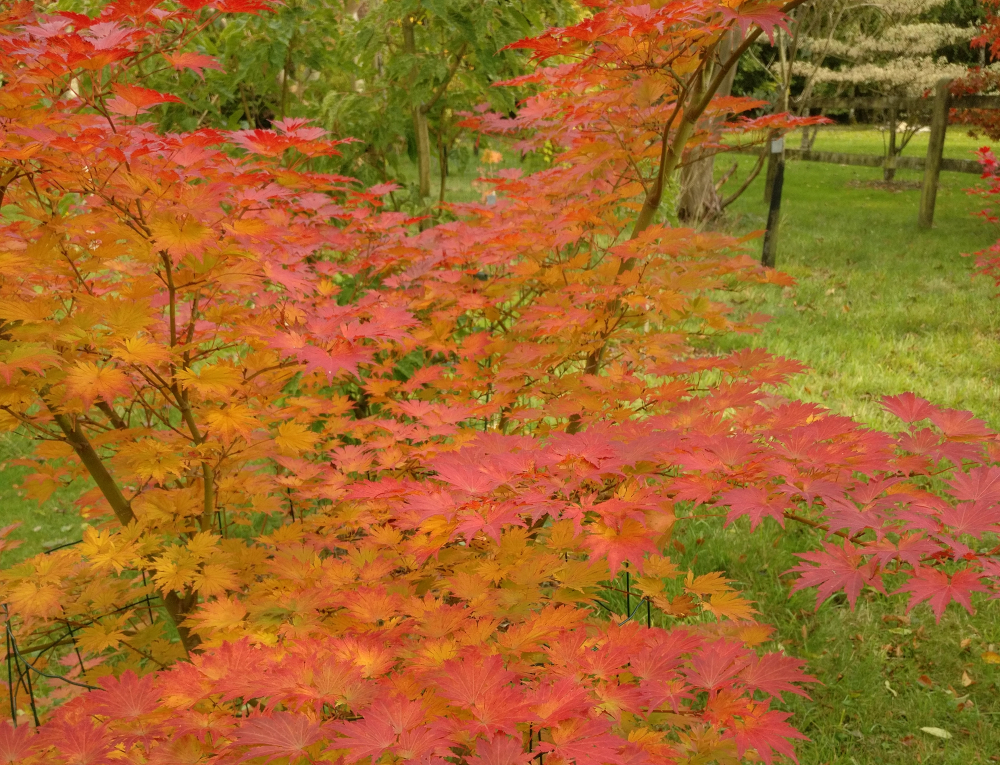Over the years, maples have become increasingly popular, with more and more people planting them in their gardens. Today there are nearly 160 species growing wild throughout Europe, North Africa, Asia and North America, many of which thrive in our gardens.
What other tree genus can offer horticulturists the variety and scope for large or small gardens, patio or container planting, than the numerous maple species and cultivars? Selections for size, form, bark, foliage, flowers, leaves or autumn color are abundant. There are species for wet, dry, acid or alkaline soils, as well as for sunshine, shade, exposed or sheltered conditions.
We are a Society that caters for and fosters interest in this delightful, versatile genus.
Our History
Founded in 1990 by Doug Goodyer, Superintendent at Hever Castle, the Maple Society’s original goals were to encourage the cultivation of maples; enable members to learn from each other about their propagation, cultivation, introduction and identification; and facilitate the study of the botany, including the uses and cultural needs of maples; and support the conservation of maples in the wild.
In 2001, a group of individuals located in the United States founded a North American branch, and our two organizations have been working closely together and collaborating on events ever since.
The Maple Society Today
More than 30 years since our founding, The Maple Society continues to achieve our goals. Our current President is Agustin Coello-Vero; our members, past and present, include the popular plantsman, broadcaster and author, Roy Lancaster, Dick van Gelderen and his son Cor (Plantuin Esveld), Gordon Harris, (Mallet Court Nurseries), Piet de Jong (Von Gimborn Arboretum), Hugh Angus (Westonbirt Arboretum), Koen Camelbeke (Wespelaar), Peter Gregory and J. D. Vertrees (authors of Japanese Maples), and many other leading experts in the world of maples.
Benefits of membership in the Maple Society have grown along with our membership, and include our incredible Seed Exchange program; our Maple Cultivars Database; the ability to “Ask The Experts;” a quarterly newsletter containing information on maples in cultivation and in the wild, and to which members are welcome to contribute articles of interest, news, views, problems; regular symposia, meetings, and by leading authorities in various languages; active support of maple conservation through our bursaries; expert-guided tours of major collections and gardens; and a passionate network of fellow members who are always willing to offer support, advice, and camaraderie.
To quote Roy Lancaster: “Whether you grow, paint, study or simply enthuse over them, you will be supporting one of the loveliest, most variable and useful of all groups of ornamental trees.”
Interested in becoming a member? The Maple Society invites you to join us, and find out more about a these fascinating trees that offer variety in every month of the year. All levels of enthusiasts are welcome!

